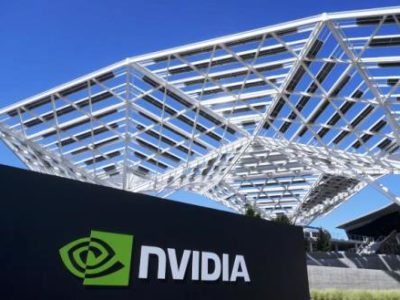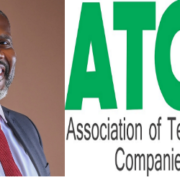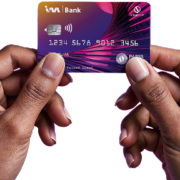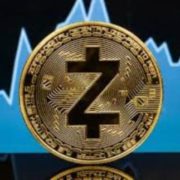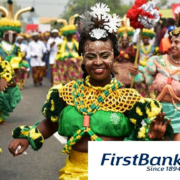By Oluwatobi Opusunju and Chinedu James
Nigerians are worried over the deadline to get their National Identification Number (NIN) blaming a mix of factors for their inability to acquire their NINs since the campaign kicked off more than five years ago. Majorly blaming the National Identity Management Commission (NIMC) for inability to publicly inform citizens on the need to register for the NIN and also failure to respond to enquiries, many Nigerians believe the NIMC has done little to educate and engage citizens on the NIN. Some who claimed to have registered since 2014 said they are yet to be attended to by the NIMC.

A recent report by IT Edge News expresses the position of the NIMC that Nigerians without NINs after the deadline risk being denied access to their bank accounts including salaries. The NIN is a set of unique 11-numbers issued to individuals/citizens who have registered with the NIMC. The NIMC captures the digital identity of all citizens and issued them the NIN as their unique digital identity. All identity (ID) based transactions will soon become permissible only by the use of the NIN.
The NIN is designed for citizens’ registration as part of government’s national strategy to build database on all citizens for enhanced economic planning. It consists of 11 non- intelligible numbers randomly chosen and assigned to an individual at the completion of enrollment into the National Identity Database (NIDB).
In fact, by law, under the NIMC Act No 23 of 2007, all citizens and residents must have the NIN to conduct ID based transactions.
NIMC has also warned that beginning from the first quarter of this year; it would begin the enforcement of the law that makes it mandatory to have the NIN to conduct transactions that are bank-based, online (ecommerce-based) and even acquisition of international passports among others.
HAVE YOU READ THESE RELATED STORIES?
https://itedgenews.africa/2017/08/09/nimc-blames-recession-low-citizens-registration/
https://itedgenews.africa/2016/08/31/danbatta-ncc-boss-seals-mou-data-harmonization-nimc/
But Nigerians are worried that they would pay for the inadequacy of the NIMC. Emmanuel Anene told IT Edge News via the Twitter post of the story (Nigeria To Begin Enforcement Of NIN For Transactions As NIMC Set New 50 Million Target): “If there is anything like pioneer registrant, then I think I stand in for that. I have long forgotten this issue, if not for any one thing, I would have flung the printout I was given on that registration day. 2014 registrants have [not] been given theirs.”
Another respondent says: “I have never seen any television advert educating about the card or even numbers, etc… how many people have an e-ID card to show since 2015. Nothing to show.”
A reader from abroad, Michael Ebuka Edwin, asks: “Is there a platform for people outside the country to get theirs?” Some others claimed to have lost their slips and want to know what the procedures are for replacement.
Only about 28 million Nigerians have their digital identity fed into the NIDB and issued NINs, a figure which represents about 15.5 percent of the country’s total population. However, NIMC is now working with a new target to enroll additional 50 million Nigerians and legal residents and issue them the NIN by December, 2018.
IT Edge News awaits response from NIMC to its questions on the matter.
FURTHER READING
- The National Identification Number (NIN) consists of 11 non- intelligible numbers randomly chosen and assigned to an individual at the completion of enrolment into the National Identity Database (NIDB).
- Once a NIN is assigned to an individual, it can never be reassigned, given or used by another person – that makes it unique in nature.
- In the case of the demise of an individual, his/her NIN is retired once a death certificate is presented to the Commission and the individual’s death is established.
- The NIN is used to tie all records about an individual in the database and is also used to establish or verify his/her identity.
- All citizens and legal residents in Nigeria, from age zero (birth) and above are eligible to enrol for their NINs.
- The NIN should be closely guarded by individuals and not revealed to all and sundry except to relevant authorities when requested (for instance it shouldn’t be disclosed online over social media and should not be printed along with contact details on business cards or other office stationery).
Eligibility For NIN
Collection of the NIN
- Applicants ideally collect their NINs at the enrolment centres where they enrolled, but in certain circumstances they can request the NINs be transferred to other centres of their choice.
- NIN can only be collected by an individual after biometric verification and not by proxy.
Why You Need Your NIN
You have a phone number so people can contact you.
Get your National Identification Number so people can IDENTIFY you.

The NIN is set to be used for all transactions in Nigeria requiring identity verification so you’ll be using your NIN for
- obtaining your National e-ID card
- travel (international passport application & acquisition)
- opening personal bank accounts
- getting your driver’s license
- obtaining your Permanent Voters’ Card
- participating in the National Health Insurance Scheme
- payment of your taxes
- transactions related to your contributory pension scheme
- access to welfare and other relevant services from the Nigerian Government
- transactions with social security implications
- land transactions subject to the Land Use Act
- any other transactions NIMC may so prescribe and list in the Federal Government Gazette
NIMC is engaged in harmonization and integration of data with various agencies across Nigeria who deal with the various services above to ensure smooth coordination of activities.








